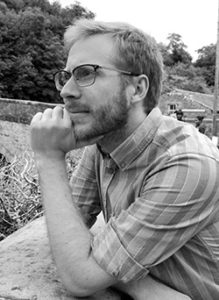JD (University of Trento), PhD (University of Trento) – Postdoctoral Research Fellow
Contact Details: [email protected]
I am a Research Fellow in Legal History at the St Andrews Institute of Legal and Constitutional Research. I joined the Institute in 2017 to work on the comparative legal history project Civil Law, Common Law, Customary Law: Consonance, Divergence and Transformation in Western Europe from the Late Eleventh to the Thirteenth Centuries. My research focuses primarily on the relevance of the common scientific heritage of European jurisprudence in William Blackstone’s construction of a scientific understanding of English Law. I have a first-class honour degree in Law and a PhD (cum laude) in ‘Comparative and European Legal Studies – History of Roman Law and European Legal Thought Curriculum’ from the University of Trento. I have been a Visiting Fellow at the Robert H. Smith International Center for Jefferson Studies, as well as a Visiting Researcher at the Library of Congress, the Georgetown University Law Center, and the Robbins Collection in Civil and Religious Law at the University of California, Berkeley.
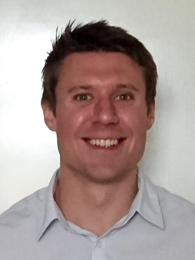 Dr Will Eves
Dr Will Eves
LLB (Warw.), LLM (Warw.), MLitt (St. And.), PhD (St. And.)
Contact Details: [email protected]
My research interests combine both law and history. I first obtained an LLB in law, followed by an LLM in international law. After a period working in the legal sector, I undertook an Mlitt in mediaeval history here at St Andrews. I then completed a PhD in mediaeval legal history, also at St Andrews, on the use and development of the English common law action mort d’ancestor in the late twelfth and early thirteenth centuries. During the final year of my doctoral research I held a 6-month Scouloudi Junior Research Fellowship at the Institute of Historical Research (School of Advanced Study, University of London). Immediately following the completion of my PhD thesis I worked as an AHRC Cultural Engagement Fellow on a public engagement legal history project at the School of History. I am currently a research fellow in the St Andrews Institute of Legal and Constitutional Research working on the European Research Council funded comparative legal history project: ‘Civil Law, Common Law, Customary Law: Consonance, Divergence and Transformation in Western Europe from the late eleventh to the thirteenth centuries’. My research focusses on the development of the concept of ‘ownership’ in England and Northern France in the early thirteenth century, and in particular the influence of the Roman law concept of proprietas on legal thought and practice in this period. In addition to medieval legal history I maintain a research interest in public international law, focussing in particular on international human rights law theory and practice, international humanitarian law, and international criminal law.
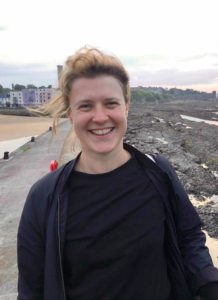
BA (University of Oslo), MLitt and PhD (University of St Andrews)
Contact details: [email protected]
I received my PhD from the University of St Andrews in 2020. My doctoral research focused on the laws issued in the Anglo-Saxon kingdoms between c. 600 and 1020, asking what we can learn about the production of legislative texts – including where, when and by whom they were written – from their language, form, structure, and use of sources.
As a research fellow on ‘Civil Law, Common Law, Customary Law’, I have moved to the post-conquest period and will be compiling a handlist of manuscripts which contain law and were in England between c. 1050 and 1250.
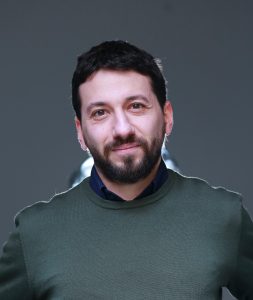
BA (University of Verona), MA (University of Verona), PhD (University of Trento)
Contact details: [email protected]
Currently a Research Fellow in Legal History in the ERC Advance Grant funded project ‘Civil Law, Common Law, Customary Law: Consonance, Divergence and Transformation in Western Europe from the late eleventh to the thirteenth centuries’ (CLCLCL), I completed my MA and PhD on lordship and rural communities in twelfth- and thirteenth-century Italy, respectively at the University of Verona (2010) and the University of Trento (2014), working for a semester at the Ecole Normale Superieure de Paris (2012).
From September 2013 to August 2016 I have been an Early Stage Researcher at Tel Aviv University in the framework of the Marie Curie Innovative Training Network “Power and Institutions in Mediaeval Islam and Christendom.” In this project I have focused on social approaches to legal developments in twelfth- and thirteenth-century Italy and France. More specifically, I deal with modern and medieval conceptualisations of ‘custom’ and ‘customary law’, the interplay of social configurations and specific patterns of law making, such as feudal law, and contextual trajectories from social practice or specific court cases to the legal texts. The finds of these investigations lie at the core of my latest research at the University of Verona (2016-17), where I have started working on a monograph on peasant and vernacular notions of ‘law’ and ‘custom’ in Communal Italy. The focus is on how the spread of literacy and notarial writing within the rural communities may have shaped these notions and how these notions were interpreted and dealt with by learned lawyers.
As a CLCLCL Researcher, I will conduct further analysis on the relations between the learned law on the one hand, judicial and social practice on the other one, by comparing archival and court evidence from sample areas of northern Italy (Milan, Bologna, Verona, Modena) with the multifaceted production of learned lawyers – treatises, peculiar collections of selected texts, glosses, notes, and commentaries. The main aim is to provide solid ground for comparison with my colleagues’ lines of investigation and try to see from new angles some dominant paradigms on the divide between the regions ruled by the Civil law and the ones ruled by the Common law.
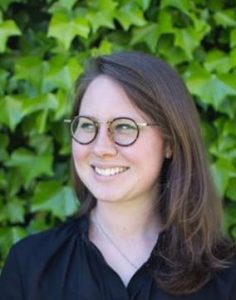 Dr Sarah White
Dr Sarah White
BA Hons. (University of Victoria) MA Hons. (Centre for Mediaeval Studies, University of Toronto), PhD (St. And.)
Contact details: [email protected]
My research interests concern legal history, legal texts and court procedure. I obtained a BA Hons. in Medieval Studies at the University of Victoria, followed by an MA Hons. at the Centre for Mediaeval Studies at the University of Toronto. I then undertook a PhD in medieval legal history at the University of St Andrews, focusing on procedure and legal argument in the thirteenth-century ecclesiastical Court of Canterbury. I am also completing a diploma in manuscript studies at the Pontifical Institute of Mediaeval Studies at the University of Toronto, with a focus on diplomatics and textual editing (funded by a Mellon Fellowship).
I am currently a research fellow at the University of St Andrews Institute of Legal and Constitutional Research, working on the European Research Council funded comparative legal history project: ‘Civil Law, Common Law, Customary Law: Consonance, Divergence and Transformation in Western Europe from the late eleventh to the thirteenth centuries.’ My research focuses on twelfth- and thirteenth-century procedural treatises, mainly Ordines iudiciarii and Ordines iudiciorum produced in England, and on ecclesiastical and Roman legal procedure more generally.
In addition to my work on medieval legal history, I am also interested in the creation and use of digital archives and editions. As part of my PhD research, I constructed the Canterbury Court Records project: an online database of manuscript images and transcriptions created in collaboration with the Canterbury Cathedral Archives, sponsored by the Institute for Legal and Constitutional Research (ILCR), the Association for Manuscripts and Research Collections in Archives (AMARC), and the Royal Historical Society (RHS). I am also the translator and editorial assistant for The Wills of Medieval England, 1066-1300, an edition of all extant, complete wills from the period, with translations.
Previous post-doctoral researchers
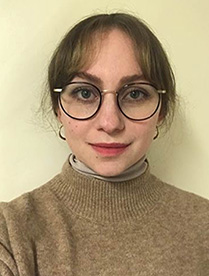 Dr Cory Hitt
Dr Cory Hitt
B.A. (Hons) (College of William & Mary), PhD (University of St Andrews)
I received my PhD from the University of St Andrews in 2017. My doctoral thesis, ‘“Establishing justice and telling stories”: Paradigms of norm transmission in 12th- and 13th-century Anglo-Norman and Old French literary and legal texts’, took a comparative approach to the rhetoric of medieval law and literature. I received my Bachelor’s degree in English from the College of William & Mary in 2011.
During my doctoral studies, I was an Early Career Researcher/Marie Curie Fellow on the EU-funded ITN ‘Power and Institutions in Medieval Islam and Christendom’. My research focuses primarily on a comparison of the rhetoric of the various Old French and Anglo-Norman coutumiers by way of a detailed analysis of redemption of property and status. My work takes a particular focus on status law as it relates to freedom and un-freedom, succession and contested alienation, and the gendered aspects of the heritability of status.
B.A. (Hons) (University of Victoria), PhD (University of St Andrews)
Contact details: [email protected]
After obtaining my PhD from the University of St Andrews for a thesis entitled ‘Power, Lordship, and Landholding in Anjou, c.1000–c.1150’ (2014), supervised by Professor John Hudson, I held the position of Leverhulme Early Career Fellow at King’s College, London. I am currently a Postdoctoral Research Fellow on Professor Hudson’s ‘Civil Law, Common Law, Customary Law’ project, exploring the interaction between aspects of customary law and Roman law in eleventh- to thirteenth-century western France. In addition to my duties as a postdoc on CLCLCL project, I am finishing my first monograph, entitled Righting Wrongs and Wronging Rights: Violence, Law, and Lordship in Western France (c.980–c.1150).
My research explores legal culture and processes of legal change during the central Middle Ages, focusing chiefly upon western France. It develops these questions along four main strands. One strand looks at the legal dimensions of violence against property, examining what such dimensions can tell us about the relationship between law, property, and political structures. Another strand focuses on courts and jurisdictions, especially so-called seigneurial jurisdictions, asking questions about processes of institutionalisation and power. A third strand addresses more theoretical questions centred on how historians can think about law—or what has traditionally been termed ‘customary law’—in polycentric societies like eleventh- and twelfth-century France. My final strand explores the intersection between law and ritual, on both a practical and conceptual level, asking questions like how are legal processes structured and presented to participants?
 Dr
Dr 